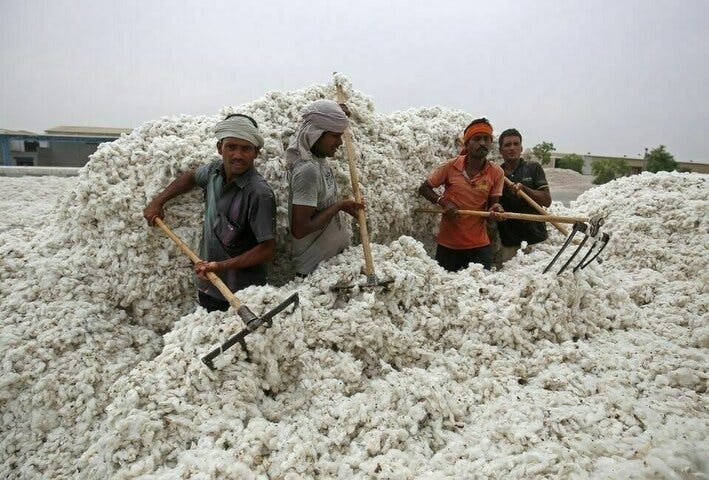Pakistan textile industry opposes cotton import duties

Pakistan's textile industry association, APTMA, is strongly against the government's plan to impose import duties on cotton. They argue these duties would hurt the industry, especially small and medium businesses, and could lead to job losses and a decline in exports.
APTMA says the current economic climate, with high energy costs and borrowing rates, is already hurting the industry. Over 60 per cent of basic textile production has shut down. Import duties would make it even harder for Pakistani mills to compete internationally.
The association also argues that import duties wouldn't benefit cotton farmers. They believe the profits would be concentrated at the ginning stage, not passed on to farmers. Additionally, duties could lead to a shift away from domestic cotton as exporters look for cheaper options.
Pakistan's textile industry is a major source of exports, accounting for over half the country's total. The industry relies on 14-16 million bales of cotton annually. However, cotton cultivation has significantly decreased this year due to reduced sowing areas and extreme weather events.
APTMA claims the sowing area is down 30-35 per cent, with only 4.4 million acres planted compared to 6.6 million last year. This could result in a cotton harvest of just 4.5 million bales, well short of industry needs.
The situation is worsened by a predicted drought and recent heat damage to cotton crops. Pakistan will likely need to import more cotton than ever to meet export demands.
Instead of import duties, APTMA proposes the government focus on improving domestic cotton quality and yield. This would make Pakistani cotton more competitive and increase farmer profits. They also recommend a multi-stage duty-free import scheme to support the entire textile value chain.
By addressing these issues, APTMA believes the government can stimulate industry growth, which would naturally increase demand for domestic cotton and benefit farmers.
